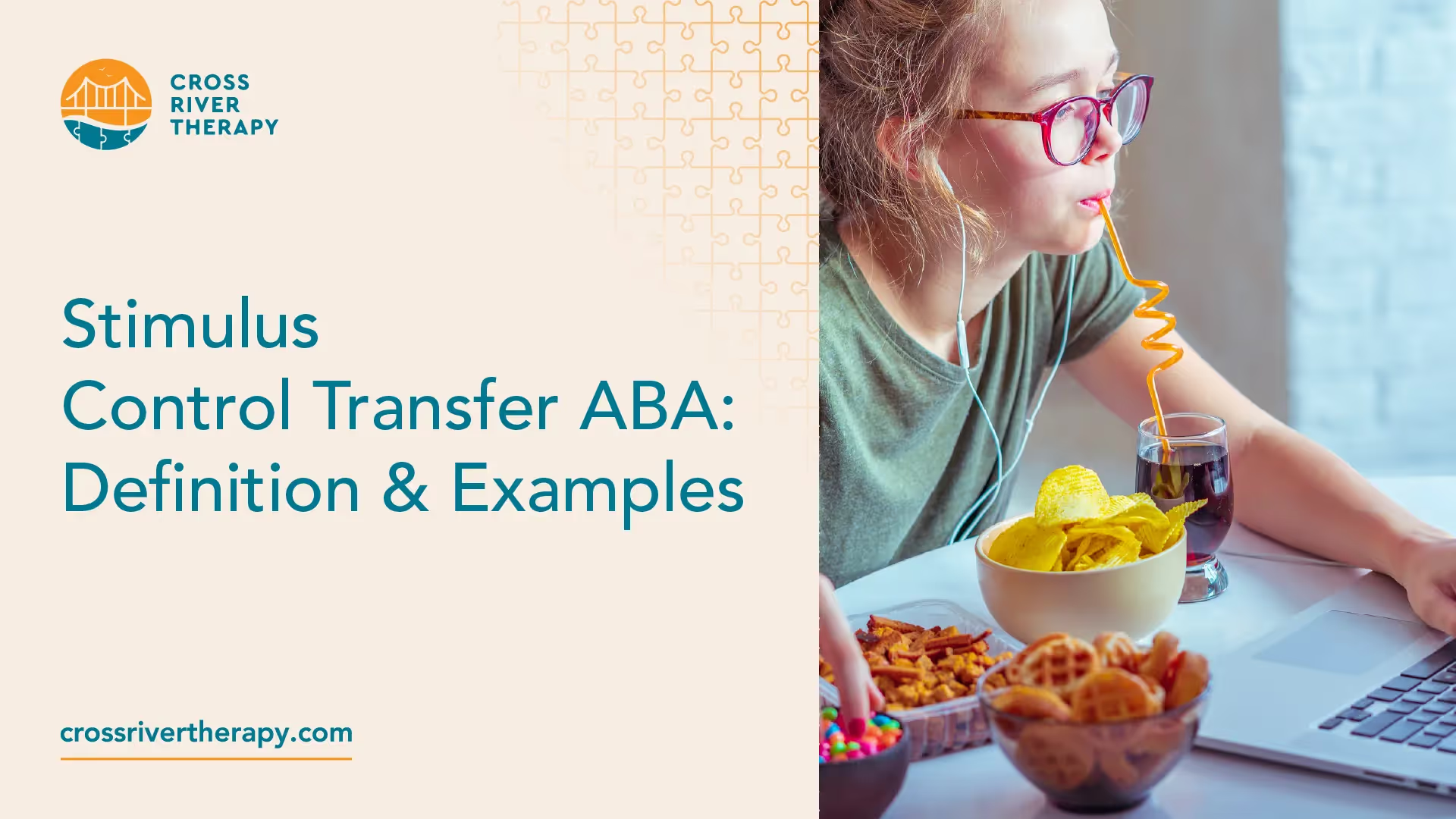Stimulus Control Transfer ABA: Definition & Examples
Stimulus control is defined as an expression used to detail circumstances where a behavior is triggered by the existence or absence of a stimulus.

What Is Stimulus Control in ABA?
Stimulus control is defined as an expression used to detail circumstances where a behavior is triggered by the existence or absence of a stimulus. If someone prefers to eat while they're on the computer, then their eating patterns are controlled by the stimulus of being on the computer.
The same could apply to watching television. If a man places a TV dinner in front of his couch in the living room to eat dinner in the evening, he through operant conditioning has eating behavior that's dominated by the action of having food in the living room at that time.
Some students are very social with their friends outside, yet in class, they become very silent.
This is normal for most attending classes, as is expected due to being in an institution of learning.
The social setting of a school is expected to be more regimented and modest, where the stimulus control for staying quiet and showing respect for teachers rules over loud talking.
It's the exertion of stimulus control over the harness for students to chatter. As such, stimulus control and prevent, stop, or encourage certain behaviors.
Antecedents are an important aspect of stimulus control. They make up circumstances that come before the current time. Antecedent stimuli happen before a behavior is presented, as is the case in operant conditioning.
Practitioners of operant conditioning oftentimes claim that behavior is dominated by consequences. In this sense, fear is the biggest motivator.
Although this could serve as the basis for understanding operant conditioning, it's not entirely complete.
Behavior can also be controlled by antecedents, which is when stimulus control is shown.
Stimulus Control Examples
In one example, a strong thunderstorm is approaching a region that's very accustomed to receiving lots of lightning strikes throughout the year. A man and his wife stay in this region. Quickly, they unplug the computers first.
If lightning strikes a house directly, it could travel through the electrical wires and over-surge sensitive computer equipment.
The husband and wife's behavior is controlled by their frequent run-ins with powerful thunderstorms and lightning storms.
Lightning striking the house and damaging the computer by way of a surge would be a potential antecedent. High-quality surge protectors won't work when a lightning strike is close by.
Through their reaction to the antecedent stimuli of lightning strikes in a storm, they make the effort to stay away from a punishing stimulus. This would be damaged equipment that's costly and time-consuming to replace.



